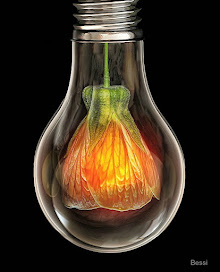I had a New York moment in Ann Arbor, Michigan. It's been over three years since I arrived from New York. Developers have cannibalized half the places I miss in the city, but home is home and certain things make you miss it like hell even if the places you knew don't exist anymore. New Yorkers can't help themselves. What's trapped inside our heads from childhood defines our whole life; forever.
A New York moment, now? It took me a year to realize that all of the things I thought I couldn't find anywhere else in the country were here; food, friends, quirky creatives, local coffee roasters, community, people who are driven by "why?" instead of "so what?" So what took so long?
Lesson One: My problem was that I thought New York City was the center of the universe. It isn't. Especially now.
The possibility of a New York moment in Ann Arbor existed the day I arrived. There are a lot of ex-New Yorkers in Ann Arbor. Some up and left because they were bored. Others had kids and thought New York City was 'no place to raise a family'. Some folks went to The University of Michigan and felt the same urge Diaspora Jews had for "the return". Baby boomers who experienced one too many trips through the revolving door marked "failing economy" got tired of the unrelenting vertigo and took off to explore entrepreneurial terrain.
Ann Arbor has grit that's driven by synaptic impulses (it's home to The University of Michigan) and it's cheaper to live here than it is in New York. There's no shortage of great restaurants either, though you'll have to go to Ypsilanti if you want really good Chinese food. As far as supermarkets go Kroger is a food mecca and if you're in luck, the first cashier you meet will know more about science fiction than the entire cast of The Big Bang Theory (in my case a cashier recognized that "the Krell" were an advanced race from outer space in the movie Forbidden Planet and was happy to tell me so when he saw the spelling of my middle name). Buh-bye New York. I'll visit often, but when I do please know I'm not staying for good. People in Ann Arbor are characters and as the only "trained nose" in Ann Arbor, so am I.
Lesson Two: Wishing for a New York moment is equivalent to spell casting; one wish and the moment will immediately find you.
My New York moment in Ann Arbor (or A2 as the locals call it) happened when the unstoppable troika of food, love, and loss followed me into the jam section at Babo: a Market by Sava. Babo is a gourmet food store in Ann Arbor that feels like a less neurotic Dean and DeLuca and is marked by authentic conviviality that is particular to the Midwest.
I dropped by the market on a grey winter day in February and was on a marmalade mission. Babo stocks Medlar marmalade from Spain that's impossible to find if you live stateside. Juergen Ausborn introduced me to this unusual fruit via a jammy confection sold at a Pierre Marcolini chocolate shop he managed in New York City. (The chocolatier is based in Brussels and is no longer operating in New York; the line was dropped a year after Ausborn drowned while snorkeling in Bermuda).
 Pierre Marcolini offered some of the most exotic and delightful chocolates I'd ever eaten. The store was around the corner from The Clarins Fragrance Group where I worked as a marketing consultant so it was easy to give into temptation at least twice a week. The chocolatier was known for masterfully applying floral flavors in some of his chocolates. What he did with violet and tonka bean was beatific.
Pierre Marcolini offered some of the most exotic and delightful chocolates I'd ever eaten. The store was around the corner from The Clarins Fragrance Group where I worked as a marketing consultant so it was easy to give into temptation at least twice a week. The chocolatier was known for masterfully applying floral flavors in some of his chocolates. What he did with violet and tonka bean was beatific. I walked up to the cash register at Babo's coffee counter with flavor remembrances in tow when suddenly my eyes were drawn to colorful and oversized rainbow bars (aka seven-layer Neapolitan bars). They were childhood magnified. The decades peeled back as I looked at them; I was standing at the cookie counter at Weber's bakery in the Bronx hoping one of neatly arranged rainbow bars in the glass cookie case would find its way into my mouth. If an accompanying parent didn't buy the rainbow bars I'd deploy "cookie face" which was a glassy-eyed combination of wonder and sadness. Cookie face worked wonders on the meanest lady in a hairnet. I never left the Weber's without a few free treats. This amused my father. My mother, on the other hand, found it reprehensible even though I'd always share.
Lesson Three: When you think you've found New York you have really found yourself; no matter where you are.
All of the cookies that Babo makes are showcased inside glass domed cake stands. The presentation is so beautiful that even an oat bar looks like a deliberate work of art. The colorful macarons are a visual respite from what can be seen at the opposite side of the counter by the window; dull snow covered sidewalks, salt parched asphalt roads, and a gray sky that lasts into forever. The cashier tells me that the macrons are delicious, but very delicate. "Once in a while I get to eat one that breaks," she says with a reserved smile. I tell her how excited I am to have finally found medlar jam and she encourages me to speak with one of the store's owners. "His name is Kris and he loves to talk about food," she says.
The woman at the counter was right about Kris. He and I had an animated conversation about food. Kris and his sister Sava own Babo, Sava's Restaurant, and Aventura in Ann Arbor. The food business is family business and each of their enterprises is well run and beloved. There was something familiar about Lelcaj's elocution and it turned out that he and his family once lived in the Mosholu section the Bronx. My family moved to nearby Pelham Parkway after spending 20 years in the Fordham section of the Bronx. We reminisced about the neighborhood bakeries we knew, trips to Arthur Avenue, and agreed that the Bronx was and still is a very special place, which is largely due to its diverse immigrant population.
"Whenever I visit it doesn't matter whose house I'm in. When my head hits the pillow and I hear the overhead trains I know I'm home," says Lelcaj. I began to recall an experience I had when I visited my sister in Forest Hills last year. I was instantly comforted by the sound of overhead trains on the first night I went to sleep after flying in from Detroit. Forest Hills resembles a larger version of Pelham Parkway so it's easy to feel the comfort and nostalgia of being home in Queens. I hadn't recalled this memory until Kris shared his story.
Lesson Four: If you talk about food it can bring back the dead.
"Our family has always been in the food business," Lelcaj says. "The store is named after my father, Mark. He was with us when we got started, but died of pancreatic cancer in 2011 before it was finished."
I thought about my own father who died of pancreatic cancer in 2009. I told Kris I was sorry about his dad and we shared stories about our fathers' experiences before and after cancer. Kris tells me that Babo is an endearing Albanian term that loosely translates to "father". "It's funny," he says. "People who never knew my father say his name all the time. I like that. It's like he's always here." Kris's voice is mixed with humor and low-key irony.

The conversation shifts to neighborhood bakeries including trips to Arthur Avenue. Kris informs me that Babo's offsite baking facility smells like heaven on earth when the all of the ovens are running at once. I imagine the smell of the Stella D'oro cookie factory from my childhood, and the perfume of vanilla, anise, cinnamon, and lemon that made my sister and I roll down the car window so we could get as much of that sweetness into our lungs as was humanly possible (we'd practically hyperventilate). These experiences led to the permanent appearance of Stella D'oro Breakfast Treats on the shelf next to the cereal in our kitchen pantry. The "S"-shaped treats were a food group in our household and each of us was known to enjoy them with a little bit of grape jelly.
Lesson Five: New York has a cookie that really isn't really a cookie, and a really good one doesn't exist in Ann Arbor...yet.
The texture of Stella D'oro Breakfast Treats is slightly crumbly and reminds me of a New York cookie from my childhood that is really a large handheld cake masquerading as a cookie. Black and white cookies are frosted with equal halves of vanilla and chocolate icing. Memories of eating them inspire an insatiable craving so I ask Kris if he remembers them and he does. The staff at the take-a-number bakeries of our childhood would hand tie boxes of these cake-like cookies and hand them off like presents. Black and White cookies had a tendency to disappear.
There aren't any cake boxes or spools of striped bakery twine at Babo, but the gourmet food shop is rife with imagination and possibility. I ask Kris if he thinks Babo could make black and white cookies. He thinks about it and smiles. We exchange business cards and I make my way towards the door with four jars of medlar jam in hand. The temperature outside is bitter cold, but it doesn't bother me. Kris had a gleam in his eyes. I saw a black and white cookie in their light...
Notes:
For a great description of the Stella D'oro aromascape read Ian Frazier's article "Out of the Bronx: Private Equity and the Cookie Factory," in the February 6, 2012 edition of The New Yorker.
For the record, the producer of The Big Bang Theory is Mark Cendrowski; a graduate of The University of Michigan. Word, nerd...
Kate Krader, chef and writer for Food and Wine, insisted on visiting one of the local Pelham Parkway bakeries in my neighborhood when we were just out of college. Her quest? The perfect black and white cookie. She returned to Greenwich Village with a bag of them.
I've been working for two arts organizations at The University of Michigan since February 2013. Each organization promotes interdisciplinarity that is inclusive of the arts. The Alliance for the Arts in Research Universities (a2ru) is a national organization. ArtsEngine is a local one. Both are housed on North Campus at The University of Michigan in Ann Arbor.











